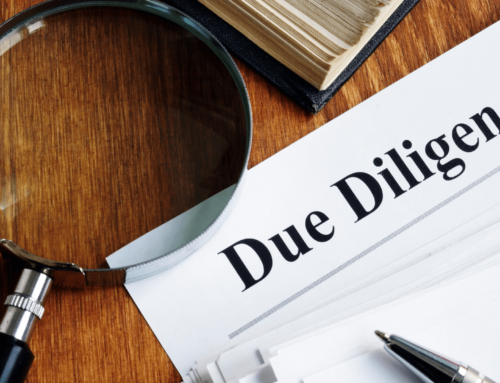Have you been thinking of investing in real estate but don’t know where to start? Buying a house subject to existing mortgage is an excellent option for new and aspiring real estate investors.
It’s a strategy that allows investors to take over the existing mortgage payments of the seller and take ownership of the property without having to bring all cash to the table or obtain outside financing.
In this article, I will take you through the process of buying a house subject to existing mortgage, available legal forms, and common risks associated with this strategy.
What is “Subject To”?
“Subject To” is a real estate investing strategy where a buyer takes over the seller’s existing mortgage payments. Instead of applying for a new loan, the buyer pays the remaining balance of the seller’s mortgage. The deed transfers to the buyer, but the mortgage remains in the seller’s name.
Remember that while the deed transfers, the original loan stays in the seller’s name, meaning they’re still legally responsible for the mortgage. Hence, this method requires a significant level of trust between the buyer and seller.
Underlying Principles
The underlying principle of this strategy is that the buyer takes over the payments on the existing mortgage, and the title of the property is transferred to the buyer with the original mortgage still in place.
In other words, the buyer doesn’t have to purchase the property outright with cash or another form of financing, but instead, they get to leverage the seller’s existing mortgage.
Finding Suitable Properties
To find properties that are eligible for this kind of strategy, you can start by searching for motivated sellers.
Motivated sellers may want to get rid of their properties for various reasons such as they can’t keep up with mortgage payments, relocation, divorce, or bankruptcy.
You can find such sellers in real estate listings, social media groups, or even talk to real estate agents.
There are a lot of ways of finding motivated sellers, Click Here to get free access to my report on the 49 ways of finding motivated sellers.
Legal Forms
Buying a house subject to existing mortgage involves certain risks, and it’s essential to ensure legal protection.
Having the correct forms, specific to your state, is important for your protection as well as your seller’s.
These forms will help you transfer the title of the property, indicate that the buyer is taking over the existing mortgage, and protect both parties from potential legal disputes.
When it comes to the paperwork side, we have a complete course where you will learn a step-by-step guide on how to complete Subject To Paperwork. You will also get access to the exact paperwork forms that we use to close our Sub2 deals.
Always, always, always have any forms from any educational materials reviewed by competent, local, legal counsel before using them in any real estate transaction. They should be able to instruct you on any additional work that should be added or taken away from the documents.
Risks Involved
When buying a house subject to existing mortgage, there are risks to be aware of. For instance, unless you verify all the terms of your seller’s mortgage, and you may end up assuming a larger responsibility than you anticipated.
A title report on the property is another absolute must. You have to be sure there are no other liens or judgments other than the ones the seller has informed you of.
Also, if the lender discovers title has been transferred, there is a chance they could decide to call the loan due. This is referred to as the Due on Sale clause that is in virtually 100% of all institutional mortgages written since the early 1980’s. The chance of this happening is very small but it is a risk that does exist. Therefore, it’s essential to consult with a real estate attorney before proceeding with this strategy.
Closing The Deal
The final step is to close the deal, which involves transferring the title, executing legal forms and disclosures, and finalizing details of the transaction.
It’s important to maintain communication and transparency with the seller and seek legal counsel before signing any agreements.
What About The Due On Sale?
A common concern for investors buying a house under existing mortgage conditions is the “due on sale” clause.
Essentially, this clause gives the lender the right to request full payment of the mortgage if any interest in the property transfers outside of those allowed by the Garn St. Germain Act. However, it’s important to understand that lenders primarily aim to receive payments, often loaning money at a higher interest rate than they’re paying and profiting from the difference.
If the mortgage isn’t being paid and becomes a non-performing loan, the lender can foreclose to reclaim the property and sell it.
Many people worry about the potential fallout for the buyer or seller if a loan is called due, but what happens to the lender? When a property is repossessed because of foreclosure or a called loan, the lender faces penalties from the Federal government for having a non-performing loan, a “bad debt”.
If a loan becomes a bad debt, the government restricts the lender from lending out eight times that amount, which further discourages them from calling loans due prematurely.
The Bottom Line
Buying a house subject to existing mortgage is a popular real estate investment strategy that can help new investors acquire properties without having to pay for them outright. However, it’s essential to research extensively, seek legal counsel, and understand the risks associated with this approach.
With proper planning and due diligence, this strategy can offer promising returns to real estate investors.







